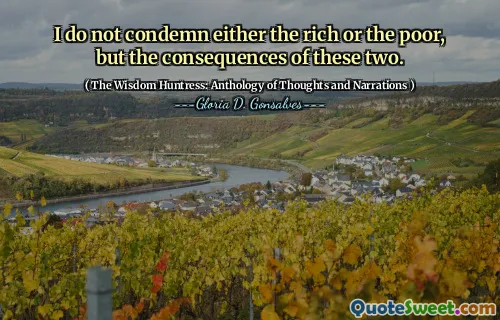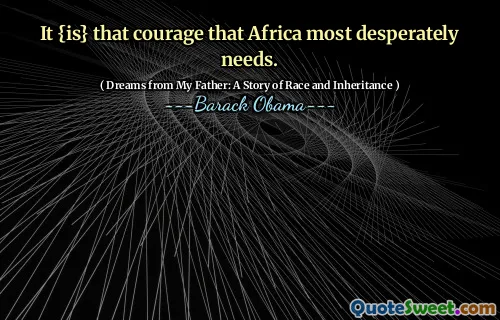
I do not condemn either the rich or the poor, but the consequences of these two.
This quote speaks to the nuanced understanding of social and economic disparities. Instead of judging individuals based solely on their economic status, it shifts focus towards the outcomes and effects that such disparities produce in society. The distinction is critical because it acknowledges that wealth or poverty, in isolation, may not inherently determine a person's character or worth. However, the resulting consequences—such as social division, inequality, access to opportunities, and the potential for societal unrest—are what truly shape the fabric of community life.
In examining such themes, it becomes clear that the root issue isn't necessarily the presence of wealth or poverty but the societal structures and policies that perpetuate or alleviate the negative outcomes associated with these states. For instance, extreme poverty often leads to struggles with accessing basic needs like education, healthcare, and safe living conditions, which trap generations in cycles of hardship. Conversely, unchecked greed and excess among the wealthy can create widening gaps, fostering resentment and alienation.
The quote invites us to think about responsibility, not just on individuals, but also on collective systems. It urges policymakers, community leaders, and individuals to focus on mitigating damaging consequences—through equitable policies, social safety nets, and community-building—rather than simply assigning blame based on economic class.
Furthermore, this perspective fosters empathy, reminding us that people's circumstances are often outcomes of societal processes. It challenges simplistic judgments and encourages a more compassionate and systemic approach to addressing societal issues. In the end, emphasizing the importance of managing the consequences rather than condemning the inherent statuses leads to a more constructive dialogue about social justice and community well-being.
This understanding aligns with the broader goals of fostering a society where economic disparities do not translate into social dysfunction or widespread suffering, but instead pave the way for inclusive growth and shared prosperity.





